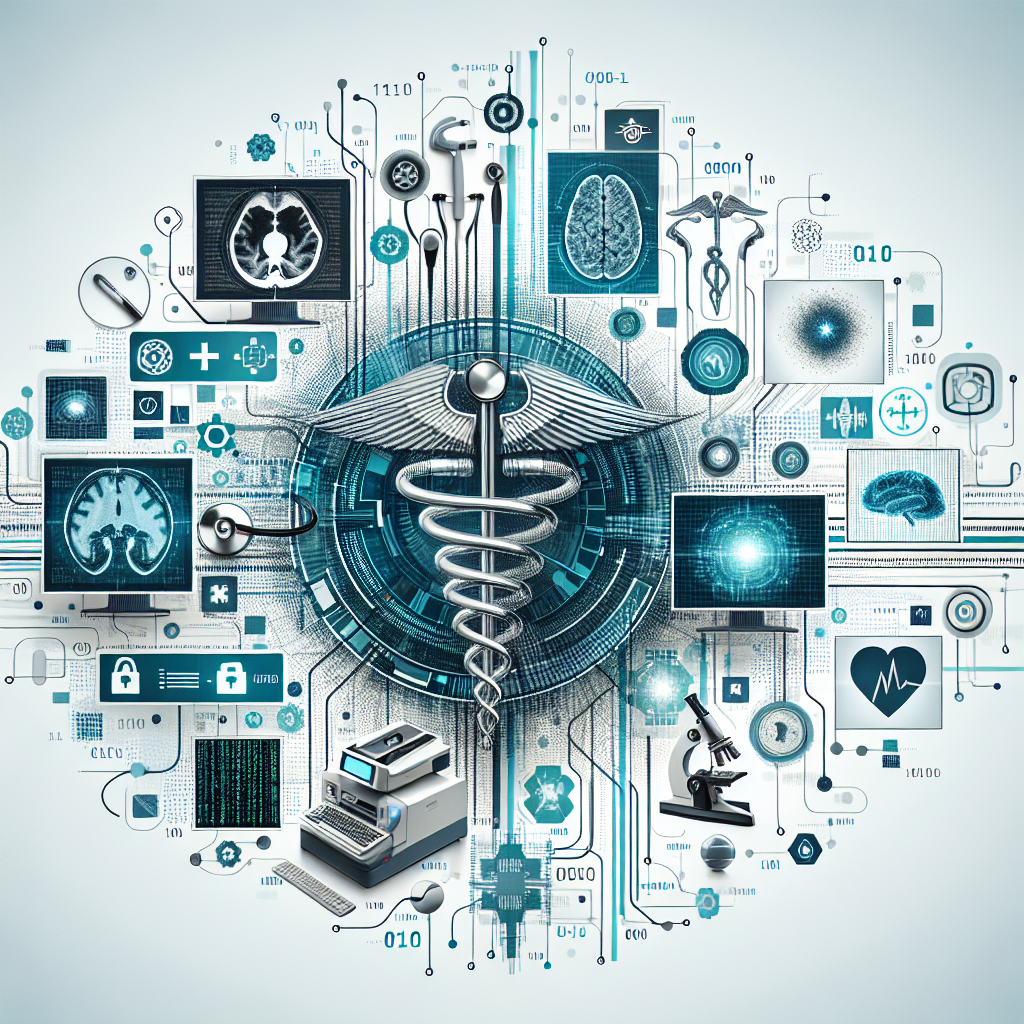The healthcare industry is undergoing a sweeping transformation, driven by advancements in technology, particularly artificial intelligence (AI). As AI continues to evolve, its integration into medical diagnostics stands as one of the most promising developments. This article explores how AI is revolutionizing healthcare diagnostics, improving accuracy, efficiency, and patient outcomes.
Table of Contents
- The Rise of AI in Healthcare
- How AI is Transforming Medical Diagnostics
- Benefits of AI in Medical Diagnostics
- Challenges and Limitations
- Real-World Applications of AI in Diagnostics
- Future Trends
- Conclusion
The Rise of AI in Healthcare
The healthcare sector has been increasingly adopting AI technologies over the past decade. According to a report by Accenture, AI applications in healthcare could potentially save the industry $150 billion annually by 2026. This indicates not just a financial incentive but also a substantial opportunity for improving patient care (source: Accenture).
How AI is Transforming Medical Diagnostics
AI’s impact on medical diagnostics is profound, introducing innovative methods for disease detection, patient assessment, and treatment. Here are some key areas where AI is making a difference:
Image Recognition and Analysis
One of the most significant advancements in AI for healthcare is in image recognition technologies. Algorithms trained on vast datasets can analyze medical images like X-rays, MRIs, and CT scans with exceptional accuracy.
Case Study: Radiology
AI systems, like Google’s DeepMind, have demonstrated the ability to outperform human radiologists in detecting breast cancer through mammograms. This capability is vital not only for early detection but also for enhancing the diagnostic workflow, allowing doctors to focus on complex cases (source: Nature).
Predictive Analytics and Risk Assessment
AI algorithms can process immense volumes of healthcare data, allowing for predictive analytics that can anticipate patient health trends and risks. By analyzing historical data and patient records, AI can identify patterns that may not be obvious to human practitioners.
Example: Diabetes Prediction
Studies have shown that AI can predict the onset of diabetes with a 90% accuracy rate by assessing lifestyle factors, family history, and lab results. This proactive approach enables healthcare providers to intervene before the condition develops, significantly enhancing patient outcomes.
Natural Language Processing in Diagnostics
Natural Language Processing (NLP) is another area where AI is transforming diagnostics. By extracting information from unstructured data such as clinical notes and patient histories, NLP allows for comprehensive analyses of patient conditions.
Implementation in Medical Records
AI-driven NLP solutions can sift through thousands of pages of medical records, providing valuable insights for clinicians. This automation reduces the administrative burden on healthcare staff, allowing them to devote more time to patient care.
Benefits of AI in Medical Diagnostics
The integration of AI into medical diagnostics offers numerous benefits:
-
Increased Accuracy: AI algorithms have shown to reduce human error in diagnostics, providing more reliable results.
-
Speed: Automated systems can analyze data faster than human practitioners, facilitating quicker decision-making.
-
Cost-Effectiveness: By streamlining processes, AI can lower operational costs associated with diagnostic procedures.
- Access: AI technologies can be deployed in remote areas, expanding access to quality healthcare diagnostics.
Challenges and Limitations
While AI is transforming medical diagnostics, challenges remain. Issues such as data privacy, algorithm bias, and the need for regulatory frameworks must be addressed to ensure safe and effective use of AI technologies in healthcare.
Data Privacy
The use of AI requires large datasets that often contain sensitive patient information. Ensuring data privacy and security is crucial in maintaining patient trust and adhering to regulations such as HIPAA.
Algorithm Bias
AI systems may inherit biases present in training data, which can lead to disparities in patient care. Continuous monitoring and updating of datasets are essential to mitigate these risks.
Real-World Applications of AI in Diagnostics
AI has already found applications across various medical fields:
-
Oncology: AI tools like PathAI assist pathologists in diagnosing cancer, improving accuracy and reducing diagnosis times.
-
Ophthalmology: AI solutions can analyze retina scans to detect diseases like diabetic retinopathy and glaucoma at an early stage.
- Cardiology: AI algorithms help predict heart disease risk by analyzing a combination of genetic, lifestyle, and clinical data.
For more information on AI in various industries, check our article on AI Transformations.
Future Trends
The future of AI in medical diagnostics looks promising. With continuous developments in machine learning and data analytics, we can expect:
- Enhanced personalization of patient care through tailored diagnostic approaches.
- Greater integration of AI tools into electronic health records (EHR) for holistic patient management.
- Improvements in telemedicine platforms, allowing remote diagnostics and consultations.
Conclusion
AI is revolutionizing medical diagnostics, offering transformative capabilities that enhance accuracy, efficiency, and accessibility. As we continue to integrate AI into healthcare, it is imperative that stakeholders understand both the benefits and challenges it presents. The future is bright for AI in healthcare, as it holds the potential to not only improve diagnostic outcomes but also reshape the entire healthcare landscape.
For more insights on the intersection of technology and healthcare, visit our site: Healthcare Innovations.
This article has explored key insights into how AI is transforming medical diagnostics, emphasizing accuracy and efficiency. The integration of AI into healthcare is not just a trend but a necessity for future advancements, ensuring better patient outcomes across the board.
